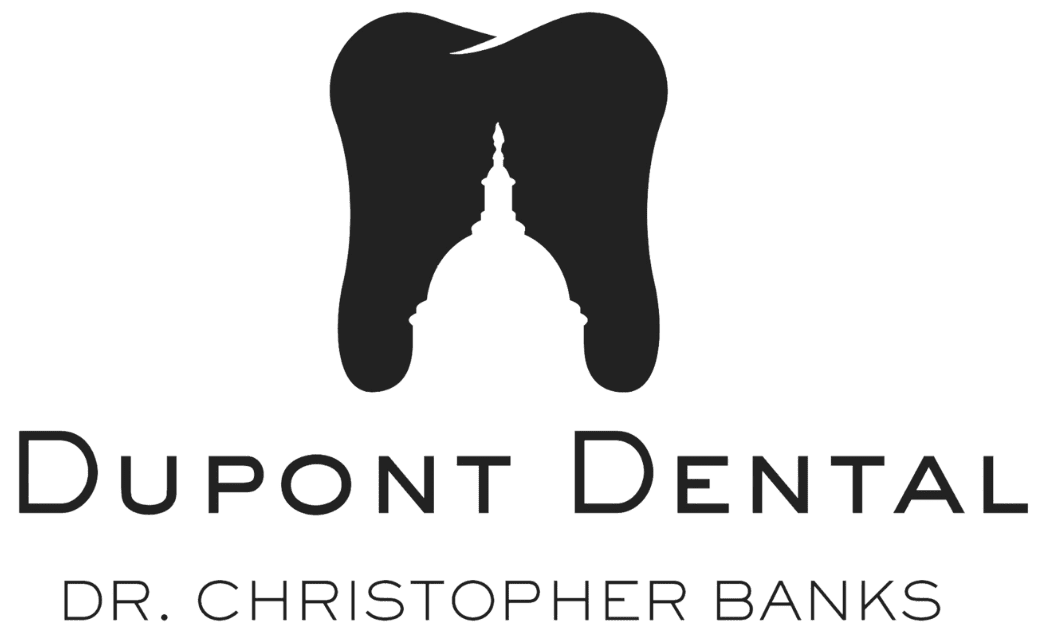Do your gums bleed when you brush your teeth? Are your gums sensitive to cold foods and drinks? You may have gingivitis. While gingivitis, or gum inflammation, is easily reversible, it can develop into a problem that can be more difficult to eliminate: gum disease.
Gum disease, or periodontitis, is a common but highly damaging dental problem that requires professional care. At Dupont Dental, we offer periodontal disease treatment in our Washington, DC, dental office for patients to restore gum health. We also offer additional restorative dentistry services in our Washington, DC, office.

The Stages of Gum Disease
Periodontal disease is a progressive infection of the gums that affects millions of individuals worldwide. It can cause serious and permanent damage. There are four main stages that, if left untreated, can progress very quickly. Continue reading to learn more about each stage of gum disease, and what can be done to treat them.
Gingivitis
The first stage of gum disease is medically known as gingivitis. This is the earliest and least severe stage of the disease. It begins with plaque and bacteria forming around the gums that hardens and causes them to become red and inflamed. The most common symptom of gingivitis is bleeding gums and chronic bad breath. Gingivitis can be reversed by brushing and flossing regularly.
Early Periodontitis
When left untreated gingivitis may progress to the second stage of periodontitis, known as early periodontitis. During this stage gums begin to recede and form pockets that house bacteria. Gums remain inflammed and red. Dental scaling and root planing is the most common way we treat this stage of the disease. This is a deep cleaning that we use to remove plaque and bacteria from the gums.
Moderate Periodontitis
The third stage of gum disease is known as moderate periodontitis. Once patients have reached this stage of the disease gum tissue and the jawbone may begin to deteriorate. At this point damage is irreversible, however treatment can prevent the progression of the disease. Gum grafting may be used to replace gum tissue, and promote gum regeneration.
Advanced Periodonntitis
The last and most severe stage of periodontitis is advanced periodontitis. There is a potential for tooth loss and a significant amount of jawbone has been lost once patients reach this stage. Bone grafting, gum grafting, and flap surgery are also options for treatment. Seeking treatment as soon as possible is crucial to prevent tooth loss.
Common Risk Factors for Gum Disease
You may be more likely to develop gum disease symptoms for various reasons. Knowing your risks of developing an infection like gum disease can help you take the necessary steps to take control of your oral health. Some of the most common risk factors for gum disease include:
Smoking
If you smoke cigarettes or use tobacco products, you may be at risk of infection. The nicotine within tobacco products can slow down your body’s immune response. Your immune system can help fight off infection. If this system is slow to react to an infection, it can be more difficult for your gums to heal.
Poor Oral Hygiene
Brushing and flossing are more important than you may think. A good oral hygiene routine can remove food debris from the teeth and gums that attract harmful bacteria. These bacteria feed on leftover sugars and starches and create digestive acids that irritate and inflame the gums.
If you don’t floss enough, you may notice your gums bleed when you brush. Bleeding gums are an early sign of gum inflammation. Flossing before brushing can reverse gingivitis if you have no other symptoms. Beginning a more thorough oral hygiene routine that includes brushing and flossing twice daily can help fight gum disease.
Medications
Antihistamines, anti-inflammatory drugs, blood pressure medications, and many more types of medications can increase the likelihood of developing gum disease. Because these medications are integral to your health, making regular dental visits and caring for your smile at home is important.
Medical Conditions
Diabetes, heart disease, and other systemic health problems can greatly increase the risk of developing gum disease. If you have diabetes and encounter high blood sugar, harmful bacteria can grow because of the glucose levels in your saliva. Additionally, if you have chronic heart problems, you may be more affected by gum disease. Harmful bacteria can travel through the bloodstream and increase heart vessel inflammation.
Age
Sometimes, you can’t control your risk of dental problems. As you age, your immune system changes. This means that infections can occur faster and take longer to heal. Gum disease is no exception. As you age, you may be more at risk of gum disease, so routine visits and examinations are integral to your health.
Hormonal Changes
Did you know that you can develop gingivitis if you are pregnant? Hormonal changes and inflammation are linked. Estrogen and progesterone increase blood flow to the gums. This may seem beneficial, but this blood flow can increase sensitivity and irritation in the gum tissue. Women undergoing menopause, puberty, or periods may also notice increased gum sensitivity and irritation due to hormone changes. The good news is that it is safe for you to visit the dentist, even if you are pregnant.
If you are pregnant and noticing early signs of gum disease, please visit our office for preventative care. We recommend dental cleanings during pregnancy to reduce the chance of gum inflammation from becoming gum disease. The only dental care we will not recommend for our pregnant patients is elective procedures.
Periodontal Disease Treatment in Washington, DC
Patients can reverse gingivitis with good daily oral care at home and regular professional dental cleanings. However, once gingivitis turns into gum disease, professional intervention is necessary to save the teeth and gums. Scaling and root planing treatments remove the tartar and plaque from the gums and root surfaces.
We remove bacterial buildup from the gums and beneath the gum line during scaling. Root planing consists of smoothing the surface of the tooth roots, which can become rough when bacteria attach to the roots. Eventually, the gums heal and then reattach to the clean surfaces of your teeth.
Restore Your Gum Health
Are you noticing changes in your gum health? Do you experience bleeding, swollen, or red gums? Contact our office at (202) 946-4720 or schedule a gum disease consultation with Dr. Banks online.
